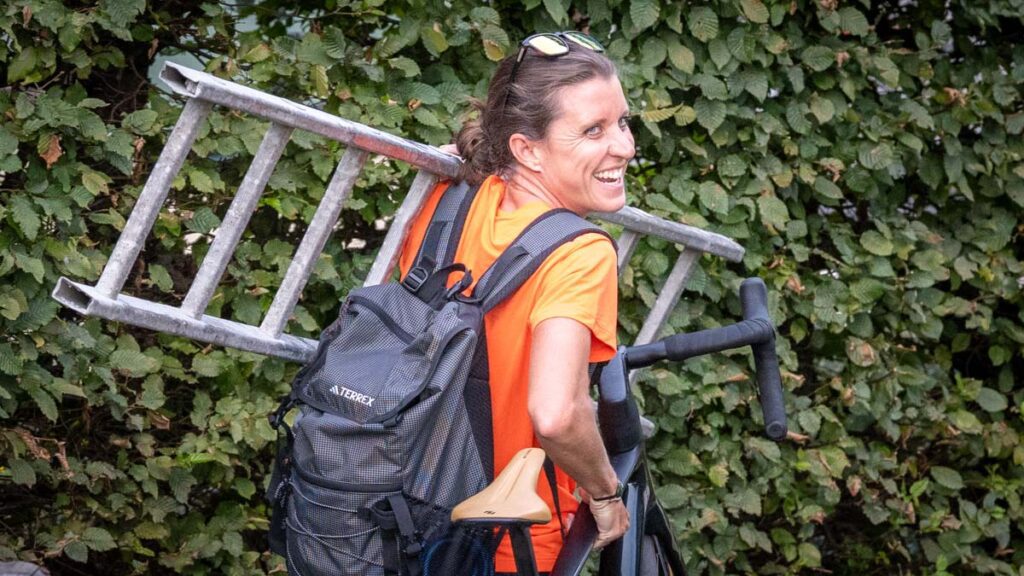As the competitive landscape of mountain ultras continues to evolve, insights from experienced athletes can provide valuable strategies for improving performance. Ruth Croft, who secured second place at last year’s UTMB, provides a noteworthy case study as she prepares for the 2025 edition of this premier event. Her reflections on past experiences and changes in her training regimen underscore the importance of adaptability and strategic planning for ultra-distance racing.
One of the key aspects Croft emphasizes is the significant impact of race experience, particularly with technical courses such as UTMB, which demands a diverse skill set from runners. Having completed the race once before, Croft benefits from a critical understanding of the course’s nuances and its demands. This familiarity fosters greater confidence and allows her to approach the race as a blank slate, free from the weight of previous outcomes. Such a mindset is essential for elite ultrarunners, as races can unfold unpredictably.
Nutrition is another vital area where Croft identifies important lessons. Last year, she learned the limitations of relying solely on solid food during the initial stages of ultra racing, opting this time for gels and powders from the outset. This decision reflects an understanding of pacing and energy management over long distances, emphasizing that effective nutritional strategies can optimize performance. Different race conditions may require adjustments to nutrition plans, and Croft’s approach demonstrates the adaptability needed in ultra racing.
Pacing is intrinsically linked to endurance and energy distribution throughout the event. Croft acknowledges that her previous experience at UTMB allows for a more refined pacing strategy this year. This planning is informed by insights gained from a meticulous review of her previous race data, including the use of tools like spreadsheets to track performance metrics. Collaborations with experts like her coach, Scott Johnston, and data scientist Joseph Mestrallet, contribute to a more analytical approach to training and pacing strategies, allowing her to enter the race prepared to respond to challenges as they arise.
Training specifics are equally crucial for ultrarunners as they prepare for mountain races. In her preparation, Croft focuses on strength-building exercises, particularly in uphill hiking, an area where she previously felt less adept. This year, she has incorporated progressive loading techniques to enhance her uphill efficiency while simultaneously avoiding undue stress on her quads during descents. The use of weighted packs in her training regimen enables her to simulate the demands of racing conditions, underscoring the effectiveness of tailored strength training in race readiness.
Mental preparation plays a significant role in tackling the psychological burdens of endurance racing. Croft’s emphasis on maintaining focus on her performance over external expectations highlights an essential aspect of competitive mindset. Recognizing that anxiety can be counterproductive, cultivating a mindset centered on personal growth and performance improvement can help runners manage the mental rigors associated with long-distance racing.
Community and support systems are also influential factors as elite athletes prepare for races like the UTMB. Croft acknowledges the enriching experience of sharing such a significant event with friends and family, enhancing her motivation and overall experience. Having a reliable crew not only aids in logistics but can also bolster an athlete’s mental and emotional resilience during grueling events.
The application of technology and data analytics is increasingly common in elite ultrarunning. Croft’s experience reflects a broader trend in the sport, where integrating performance data with training strategies can lead to optimized race outcomes. However, her approach underscores the importance of maintaining focus on core training principles while leveraging data as a supplementary tool. This balance is essential for runners who want to enhance efficiency without becoming overly entangled in the technical aspects of performance metrics.
As ultrarunners prepare for upcoming races, it is crucial to integrate lessons learned and refine strategies based on prior experiences. Croft’s commitment to assessing her previous performances and making informed adjustments highlights a key takeaway: consistent self-analysis and adaptability in training and race strategy significantly uplift one’s potential in competitive mountain ultras.
In conclusion, the experience gained from racing, combined with a careful examination of nutrition, pacing, strength training, and community support, forms a comprehensive approach that can provide an advantage in challenging ultra-distance events. By adopting an analytical mindset while focusing on individual well-being, ultrarunners can set themselves up for success in their pursuit of personal and competitive excellence.
